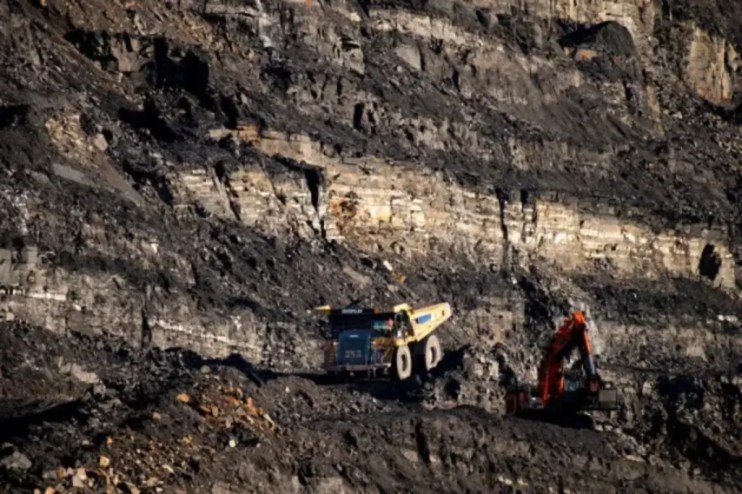What do analysts think of BHP’s £31.1bn proposal for Anglo American?

The mining world is all aquiver this morning at talks of a potential mega-deal from BHP to buy up London-listed miner Anglo American.
Metals miner Anglo has been seen as a potential takeover mark since its share price took a sharp dive last year on the back of weak production forecasts.
But just hours after the news was confirmed by Anglo this morning, its share price has jumped by more than 12 per cent, effectively erasing the losses of the last 12 months.
So what do analysts think Anglo has to offer BHP?
Principally, the play would make BHP’s already top three global copper-producing share the world’s largest and also massively boost its exposure to large, low-cost and long-life assets iron ore and metallurgical coal.
But its copper that runs through the veins of the proposal. The orange metal is currently significantly under-supplied and is forecast to become even more so thanks to closure of mines globally, delays from the coronavirus pandemic and mooted production cuts from China.
BHP already owns and operates the world’s largest copper mine in Chile’s Atacama region, but would gain Anglo American’s own copper operations in Peru and Chile, despite the shaky production forecasts the company put forward at the tail-end of last year.
What’s more, BHP is only one year removed from completing a £5bn takeover of fellow Australian copper miner Oz Minerals.
Andy Forster, senior investment officer from Argo Investments, which holds shares in BHP, said that the move “makes sense for copper, but as always with large complex transactions, it is hard to complete without destroying value along the way”.
The deal is contingent on Anglo divesting two of its South Africa-based problem children; the platinum division, known as Amplats, and Kumba Irone Ore.
The former suffered a 71 per cent profit plunge last year and responded by announcing plans to cut thousands of job cuts across its mines in February.
Kumba, meanwhile, announced a scheduled three-year cut in production in December to align output to constrained capacity to transport minerals via rail to port.
The unit has been hamstrung by South Africa’s state-run railway operator Transnet, with cable theft and vandalism causing paused or delayed cargo transits and resulting in billions of rand in revenue lost.
One peculiar nugget in the deal is that BHP apparently wants to keep Anglo American’s De Beers diamond division, a unit that has arguably been one of the most embattled parts of the business at the hands of slumped demand from China and a growing cubic zirconia market.
AJ Bell’s investment analyst Dan Coatsworth said: “There were already murmurings that Anglo might demerge its stake in De Beers, and that also seems a logical route for BHP if it becomes the (short-term) owner.”
In a wider sense, the move has heightened existing fears about an exodus from the London Stock Exchange.
Susannah Streeter, head of money and markets for Hargreaves Lansdown, said: ‘’The buyout offer won’t just shake up the mining industry, but will send a fresh chill through the City of London.”
AJ Bell’s Coatsworth, meanwhile, believes that the buy could shrink the UK-listed large cap mining sector even further, but that could in fact be a good thing.
“There is a positive effect if that happens as it could change the way the London market is perceived from an industry breakdown,” he said.
“Currently, there is a misconception that the FTSE 100 is full of old economy industries and is stuffed with miners – this is no longer the case. BHP gobbling up Anglo American would leave Rio Tinto and Glencore as the only diversified miners left in the FTSE 100.”
The deal is up in the air until Anglo American responds but Andrew Keen of investment and research consultancy firm Edison Group, said that the company’s share price jump adds credence to the possibility of the deal going through.
“Premiums for successful mergers and acquisitions in large cap mining are often in the order of 30 per cent and Anglo’s announcement indicates that the approach has been made on an all-share basis, but cash components can be used as sweeteners and initial offers are often improved,” he said.
“Anglo has had a spate of operational issues recently and now needs to argue it is the best owner of its assets and if an alternative bidder emerges, its likely the debate will switch to the value of the competing offers.”
Jefferies’ Christopher LaFemina added in an emailed note that it would be surprising if this were BHP’s final offer.
“We estimate that a price of at least £28 per share would be necessary for serious discussions to take place, and a takeout price of well above £30 per share would be the outcome if other bidders were to get involved,” he said.
Perhaps the bid could also force other world-leading miners such as Rio Tinto or Glencore to enter the ring with bids of their own.
The latter could especially be one to watch, having recently shown an appetite for megadeals with its £5.5bn buy of Canadian Teck Resources coking coal portfolio, a talked down offer from the initial proposal Glencore submitted to buy Teck in its entirety.
Until more updates are announced, London’s mining sector, and the wider stock exchange, will watch with baited breath.